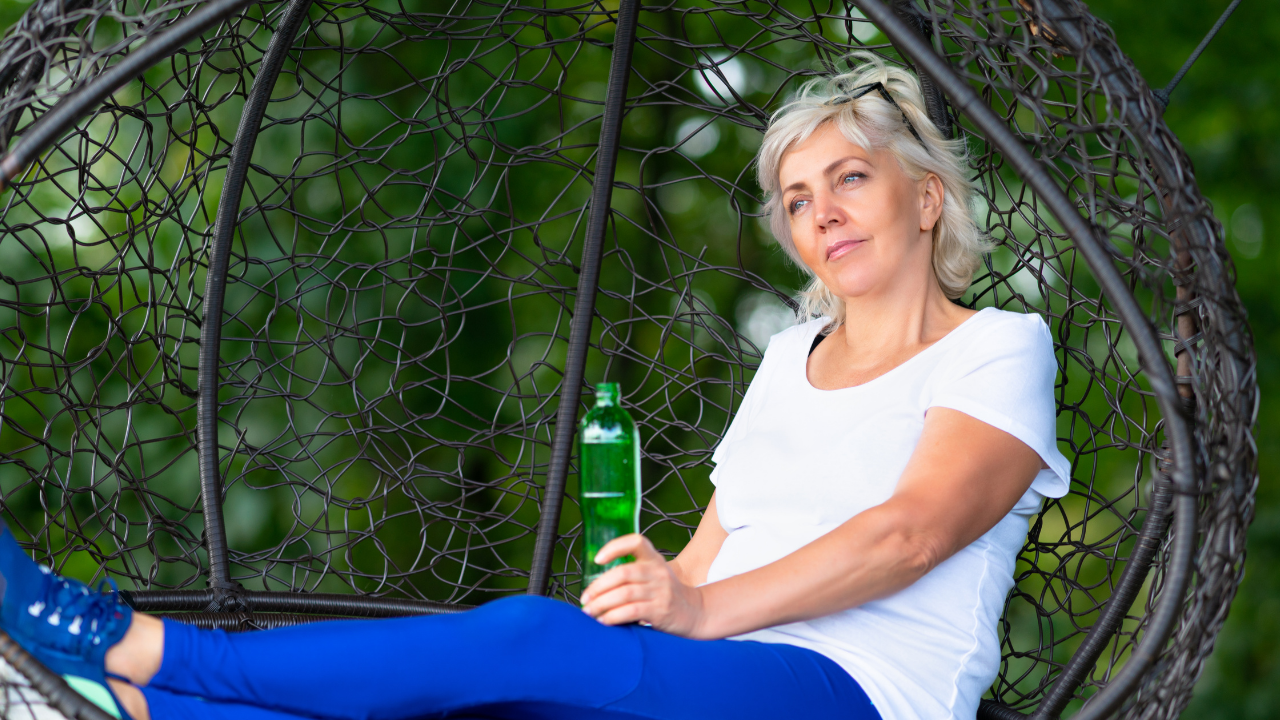Are You Fully Present?

Being fully present is something that most of us moms seek to be but the fast-paced, do-more world we live in along with our own expectations of what it means to be “good enough” keeps us from actually being completely engaged in a single task at a time. We feel forced to multitask just to keep up and to feel any sort of accomplishment yet this often leaves us feeling disconnected and even more overwhelmed. Not being present moves us away from the sense of happiness we seek to feel.
Being present requires a focused engagement of every aspect of our being including the physical, mental, emotional and even the spiritual. This is not easy to do in these modern times, especially when we are up against the hustle culture that permeates our society. We are bombarded 24/7 with distractions and demands for our presence.
We owe it to ourselves and to those we love to learn how to be fully present in the here and now.
We resort to multitasking as a way to check off our to-do list and as a result not only do our children and loved ones suffer, but our mental health suffers. I am not referring to just doing two things at a single time, but even thinking about one thing while attempting to be engaged in another. We do this so often, it becomes a habit. A habit that is not serving us at all.
We end up feeling depressed and/or anxious and we miss opportunities for connection, which is something we desperately need as humans. Our own potential is jeopardized simply because we cannot be fully present in the moment. Granted, it is impossible to remain present 100% of the time, but we can take certain precautions and build up our ability to be fully present.
There are certain advantages to learning how to live completely in the moment including an increased sense of calmness or peacefulness that is only possible when you are completely engaged, mind, body, and spirit, in a single task. We gain clarity and focus and our conversations end up being more meaningful and way more engaging when we are able to be all there. Life moves pretty fast when you’re not paying attention and we can actually slow down life by fully focusing on the moment at hand. Finally, as I mentioned above, being present in the now increases feelings of happiness.
Life moves fast but we can slow it down
So, how exactly do we go about being fully present? Luckily, being fully present in the here and now is a skill that can be developed and as you practice being in the here and the now, it will get easier to do. Today, we’re going to focus on three ways that you can increase your ability to be fully present so that you can begin to experience the above mentioned benefits. Be patient with yourself as you learn these practices.

1. Breathe
Breathing in and out is something we do every day and of course, I wouldn’t count this as multitasking if you are on the floor playing with your child and breathing at the same time. But, turning your complete attention to your breathing is the simplest place to begin when we are talking about being fully present in the here and now.
Because breathing is not a task we do intentionally and we often get through an entire day without thinking about it much, it provides us with life and that is exactly what we are working towards improving so it makes sense we start with this one thing. So, get comfortable, plant your feet on the floor, and get ready to turn your attention inward.
Turn your complete attention towards the breaths you are taking
Up to now, you may have heard that the best way is to breathe in through your nose, out through your mouth, but today, I want you to focus on breathing both in and out through your nose. Nasal breathing slows your rate of breathing down, which means your body doesn’t have to work as hard to get oxygen into your bloodstream.
As you breathe in, say to yourself “I am breathing in.” Picture your lungs filling up with the air you just inhaled. Hold the breath for five seconds then as you exhale, again through your nose, say to yourself “I am breathing out” as you allow the air to slowly escape back into the space around you. Give yourself time to repeat this exercise for a few more cycles, each time bringing your full attention to your breaths.

2. Savor the moment
We have a natural negativity bias, which means our minds tend to go naturally towards the negative aspects of a situation. Evolution demands this- back in caveman days, if a caveman was too busy admiring the sunset while a sabretooth tiger was running towards him, we wouldn’t be here right now. Nowadays, we typically don’t face survival threats quite so often, yet we still have to actively work on decreasing the negativity bias by savoring the moment, which means we need to learn how to notice what's going right and appreciate it.
It turns out that negative events and experiences get quickly stored in memory, which is why we tend to remember the “bad stuff” that happens rather than the positive events and experiences. Just ask my husband- he’s always pointing this out when I drudge up the past- lol! The “good stuff,” the positive aspects of an experience, usually need to be held in awareness for at least ten seconds to transfer from short-term memory to long-term storage. This means that we must learn how to focus on the positive parts and savor them for a while to ensure that we are taking with us the good stuff. As you savor the moment, notice the little things that can make the experience special.
We must learn how to focus on the positive and savor the moment
If you haven’t started one already, now’s a better time than any to get a gratitude list going. You can grab a piece of paper or just open up your notes app on your phone, but start reflecting on the good parts of any situation. As you are reading this, what would you say is a positive about this moment, right here, right now? Nothing is too big or too small to note.
Create opportunities that offer more to savor. In other words, find what it is you enjoy doing and do it more. If you find that you are engaging in hum-drum activities that don’t necessarily bring you joy, then switch things up a bit. Be intentional with your time and incorporate hobbies and activities into your schedule. Insert joy back into your life and start savoring those moments.
3. Meditate
Alright, we are not talking about Buddhist monks spending hours in the Lotus position contemplating for hours on the meaning of life. Rather, we are referring to the act of increasing mindfulness and awareness so that we can experience genuine joy and wellbeing. Along with enhancing overall health and wellbeing, the benefits of meditation include increasing calmness and physical relaxation, improving psychological balance, and helping us cope with illness.

Here is a simple meditation exercise that you can start with to increase your awareness and help you improve your ability of being fully present in the moment. Let’s start by turning your attention towards the sounds you hear. Allow the sounds to wash over you and focus only on the current sound you are hearing, not the one you just heard or any sound you may hear next. Take note of the sound and allow it to sit in your mind’s eye.
Now, turn your focus to your bodily sensations: your arms resting on the arms of a chair or on your lap, your legs on the chair or folded up underneath you, the feel of your clothing on your skin, any twitches or fluttering, any pain or muscle aches, and any other sensations you might be feeling.
Lastly, turn your focus to the thoughts going through your head. Observe them as they enter your mind, swirl around your consciousness, then exit your mind. Let each thought pass, labeling them as they go and keeping your mind open for the next thought to arise. Do not try to change your thoughts or empty your mind of thoughts. You simply want to note what you are thinking and let the thought go.
Enjoy the sensual aspects of the moment you are in
Have patience and give yourself grace. It is not possible to live in the now 100% of time and indeed, we should take time to think about the future and reflect on the past in healthy doses. As you make time to do these three practices with intention, you will begin to experience the benefits of living fully in the moment and it will become easier to do. Life moves fast and so it is super important to make sure you are fully present and engaged in the moments that make up your life.
Let's talk about it...
In which situations do you struggle most with being completely present? Why? Which of these exercises are you willing to practice and how do you see your life improving once you are able to be more fully present in the here and now?





